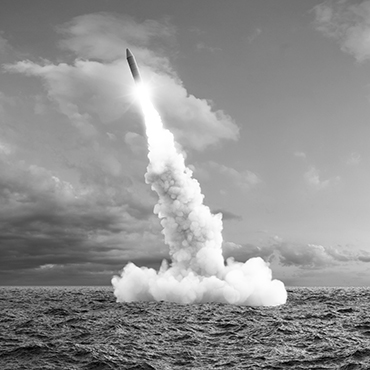NEW TWISTS IN NAVALNY-ZOLOTOV SHOWDOWN
Now that Russian opposition leader Alexei Navalny has been released from jail, he has issued a counter-challenge to General Viktor Zolotov, the head of Russia's National Guard and Vladimir Putin's former bodyguard. Zolotov challenged Navalny to a duel last month and threatened to "make a nice juicy steak" out of him. In response, Navalny derided Zolotov's behavior in a 16-minute video broadcast to his 2.2 million YouTube followers, calling him a "Sacha Baron Cohen parody of a tinpot dictator" and doubling down on the corruption allegations that provoked the general's attempted intimidation in the first place.
But Navalny's challenge, unlike Zolotov's, isn't physical. The anti-corruption crusader has called for Zolotov to debate him live on national television. Zolotov, however, has since refused, declaring that he had invited Navalny to "something different" and demanding a judicial review of Navalny's allegations. (Bloomberg, October 18, 2018)
HOW PUTIN HOPES TO REPATRIATE RUSSIAN MONEY
Russian President Vladimir Putin's confrontational foreign policy has helped to isolate and impoverish the Russian Federation. But, according to one leading economic observer, a side effect - and perhaps an intentional one - of Russian adventurism may be to create increasingly hostile international conditions that propel Russian capital back home. "Putin doesn't mind pushing Russia toward greater economic isolation if an increasingly toxic climate for Russians in the West leads to repatriation of capital exported from Russia since the early 1990s," writes Leonid Bershidsky in The Moscow Times. According to one estimate cited by Bershidsky, the accumulated offshore wealth held by Russian elites is roughly $1 trillion - three times Russia's official foreign reserves and more than the total wealth of Russia's own population.
This, in turn, gives the Russian leadership every incentive to try and bring that money home. "Measures aimed at capital repatriation are arguably one of the most coherent of Russia's current economic policies, along with fiscal and monetary stabilization. In 2015 and 2016, the government offered a financial amnesty to Russians who declared their foreign assets and allowed them to transfer the cash to Russia tax-free. Again, barely anyone took up the offer," Bershidsky notes. "This year, the amnesty was revived with additional incentives. Up until March 2019, Russians closing their offshore companies can move their assets to Russia tax-free with a guarantee that their previous tax-avoidance schemes won't be investigated. In addition, Russia has created two 'special administrative districts' on islands close to Vladivostok and Kaliningrad, the country's easternmost and westernmost big cities.” (The Moscow Times, October 11, 2018)
PUTIN TOUTS ADVANCED MISSILE TECHNOLOGY
Russia's president has publicly announced plans to unveil significant advances in the country's strategic arsenal in the near future. In public comments at a forum in Sochi, Vladimir Putin confirmed that the Kremlin will deploy hypersonic weapons in "coming months" - a step that would put Russia ahead of both China and the United States in its development of the high-speed missile technology.
The news comes on the heels of Putin's pronouncement, in his State of the Nation speech in March, that the advanced state of Russia's hypersonics reflects the fact that "all those who have fueled the arms race over the last 15 years" - a thinly-veiled reference to the United States - "have failed to contain Russia." Two of the six hypersonic systems unveiled by Putin back then are expected to be ready for battlefield duty by 2020, experts now say. (CNBC, October 18, 2018)
THE KREMLIN COURTS TASHKENT
The extensive reforms taking place in the Central Asian republic of Uzbekistan have brought Tashkent closer to the United States and Europe - and are now prompting a major charm offensive from Moscow. On a recent state visit to the country, Russian President Vladimir Putin and his extensive entourage signed an estimated $27 billion in new commercial agreements, while Putin and Uzbek President Shavkat Mirziyoyev jointly inaugurated a new nuclear power plant - the first of its kind in Central Asia. "We have never seen anything like it before," both leaders said of the new pace of bilateral ties. (Eurasianet, October 22, 2018)
Want these sent to your inbox?
Subscribe


